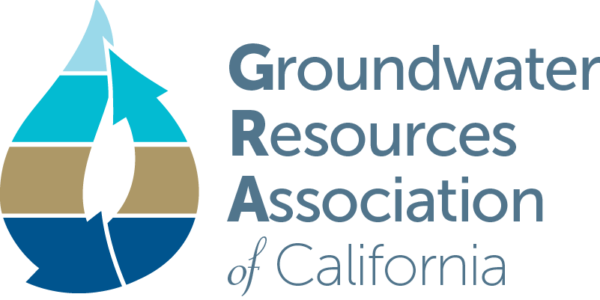March 29: Repurposing farmland that will be fallowed as part of SGMA
Join Mavens Notebook, the Groundwater Exchange, CivicWell (formerly the Local Government Commission) for the third in a series of groundwater lunch time “office hours.” These reoccurring sessions offer an informal forum to ask experts about Sustainable Groundwater Management Act (SGMA) implementation.
With the implementation of SGMA, estimates are that as much as 750,000 acres of farmland may need to come out of production to bring groundwater basins into balance. However, this doesn’t need to mean unproductive, dusty fields of weeds that worsen air quality. There are options! Potential new uses of agricultural lands include restored habitat corridors, community recreational spaces, low-impact solar and groundwater recharge basins, all of which can help improve air quality and soil health.
On March 29, our guests will be Anna Schiller, Project Manager with the Environmental Defense Fund, and Vicky Espinoza, UC Merced PhD Candidate and YouTube channel CaliWaterAg. They will provide an overview of a new program from the Department of Conservation that provides funding to help land repurposing projects be implemented, and discuss the new guidance document, Community and Grower Engagement in Multibenefit Land Repurposing.
Who should attend: Groundwater Sustainability Agencies (GSAs), beneficial users, tribes, researchers, non-governmental groups, and any other interested community member.
Submit your questions during the event or email them ahead of time to maven@mavensnotebook.com.
Click here to register.
April 4: Office Hours: Proactive groundwater management strategies
On April 4, we’ll be hosting Maurice Hall, Vice-President, Climate Resilient Water Systems, for the Environmental Defense Fund.
Maurice Hall leads EDF’s Water Program, focusing on developing collaborative water management approaches to meet ecosystem needs alongside the needs of farms and cities.
Accurate accounting of groundwater use is critical for effective management. EDF has co-developed an online water accounting platform, which is now being expanded through a partnership with the state, and OpenET, an online platform that makes satellite-based data on water consumed by crops widely access.
Join us on April 4, as we discuss OpenET, groundwater accounting and proactive water management to build resilience beyond SGMA.
Who should attend: Groundwater Sustainability Agencies (GSAs), beneficial users, tribes, researchers, non-governmental groups, and any other interested community member.
Submit your questions during the event or email them ahead of time to maven@mavensnotebook.com.
Click here to register.
March 31: WEBINAR: Electrical Hydrogeology: Building Aquifer Conceptual Models from Airborne and Ground Electrical Datasets
 The use of electrical data to provide denser datasets for conceptualizing flow and transport in aquifers is on the rise due to technology improvements and demonstrated cost effectiveness. Airborne electromagnetic (AEM) surveys provide large coverage of aquifer areas to detect regional scale flow paths and dominant fracture pathways.
The use of electrical data to provide denser datasets for conceptualizing flow and transport in aquifers is on the rise due to technology improvements and demonstrated cost effectiveness. Airborne electromagnetic (AEM) surveys provide large coverage of aquifer areas to detect regional scale flow paths and dominant fracture pathways.
Ground-based electrical resistivity imaging (ERI) surveys provide controlled higher resolution evaluation of potential drilling targets identified by AEM, to further quantify hydrogeologic parameters and assess validity of drilling targets. Temporal electrical resistivity imaging (TERI) can also be deployed to monitor and observe aquifer flow processes over time. As increasing amounts of data are collected and tested in a specific aquifer, the parameterization across the datasets becomes stronger over time.
This talk will illustrate the integration of airborne and ground electrical datasets with targeted traditional drilling/sampling data, to build robust conceptual models containing well defined preferential pathways at the regional scale.
Click here to register.
APRIL 6: WEBINAR: Managed Aquifer Recharge as a strategy for Mitigating Drought Impacts on Irrigated Agriculture in California
Managed aquifer recharge (or intentional recharge) is a purposeful human intervention designed to supplement natural enrichment processes of groundwater aquifers by various methods. It holds the potential to mitigate the impact of climate uncertainty on irrigated agriculture by replenishing storage levels in depleted groundwater sources, the economic value of which increases during droughts.
We use a high-resolution dynamic regional hydro-economic framework that endogenizes farming decisions in response to water quantity-quality changes, as well as complex hydrogeological principles to analyze several policy and climate scenarios applied to the Kings Groundwater Basin in California.
Our analysis demonstrates that intentional recharge is of benefit to the region, increasing in value under sustainable groundwater management derived from recent legislation in California. We also find that recharge strategy as well as the impact of climate uncertainty on regional welfare are sensitive to the prevailing institutional arrangements. Regional cooperation is essential, and its importance depends on climate conditions and existing policies.

